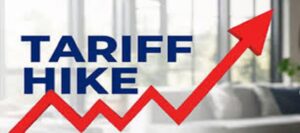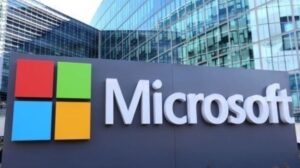Telecom
Nigerian Banks Spend $264, 000 Yearly on Data Hosting
Commercial banks in the country having adopted outsourcing model are spending some $264,000 every year on hosting of their data at different tier 111 data centres in the country, Nigeria CommuicationsWeek can now reveal.
This is in compliance with central bank of Nigeria (CBN) directive to either upgrade their data centres or host their data at a tier 111 data centre.
Data centre is an information technology infrastructure that houses servers and other storage facilities which are used by banks, among others for their core business processes.
Nigeria CommunicationsWeek investigations revealed that there are rack spaces at a typical data centre comprising of 42U and a 2U in a rack contains between 16 to 18 servers depending on their specifications, and cost $1,000 monthly to host a server at a data centre in the country.
Peter Iwegbu, managing director, Pn Consulting, and former group head, ebusiness and payment, Access bank, offering insight on hosting of server by banks, explained that banks’ servers are based on applications that the bank runs and that a typical bank in the country runs an average of 20 applications which means 20 servers.
“But today the story has changed with virtualization. This means that a bank can have one physical box with partitions inside of the box for the various applications that the bank runs. With this innovation, instead of a bank hosting 20 or more servers as the case was in the past the bank will host only one physical box reducing cost,” he added.
Ike Nnamani, managing director, Medallion Communications, a data centre operator, said that hosting of virtual machine at a tier 111 data centre depending on the specification of the machine and the operator of the data centre cost about $1,000 per month or less.
To this end, 21 commercial and one non-interest bank are spending some $264,000 to house their data at different data centres in the country annually.
James Agada, managing director, CWG plc, said: “From technical and economic considerations it is better for banks to outsource their data centres. But, then banks also consider security and control of their information warehoused in the data centre,” he said.
It was gathered that investing and managing of tier 111 data centre is a huge investment for banks to undertake going by the present economic situation in the country as well as high technical expertise it requires which is the reason they have opt for outsourcing.
Agada added that the specifications of tier 111 data centre is too big and not realistic for banks to adopt, he however, advocated outsourcing which he said some banks have already adopted. This allows banks to host their servers and other storage facilities at data centre of third party operator mostly telecommunications operators that have what it takes to run a data centre effectively.
Telecom
Nigeria Has World’s Most Affordable Data Costs – GSMA
Nigeria has an average data cost of $0.38 per gigabyte, making her the most affordable countries globally and one of the cheapest in Africa for mobile data services.

United States averages $6 per gigabyte and South Africa with $1.77 per gigabyte rank the highest globally and in Africa respectively.
According to the GSMA, Nigerian data costs, as a percentage of Gross National Income (GNI) per capita, are among the lowest across Africa.
The reports by the body lends weight to telecom operators advocacy for tariff adjustments to address economic pressures threatening the sector’s sustainability.
The GSMA report, titled “The Role of Mobile Technology in Driving the Digital Economy in Nigeria,” highlighted Nigeria’s competitive data pricing, which is significantly lower than other African nations, such as Kenya ($0.59 per gigabyte), Ethiopia ($0.68 per gigabyte), and South Africa ($1.77 per gigabyte).
By contrast, the United States averages $6 per gigabyte, underscoring Nigeria’s advantage in offering cost-effective connectivity.
The cost of mobile data in Africa varies greatly by country and region.
Data costs can refer to the cost of mobile data or the cost of acquiring, maintaining, and using business data.
In 2023, the average cost of 1 GB of mobile data in Sub-Saharan Africa was $3.31, while in Northern Africa it was $0.86.
Telecommunications operators in Nigeria have been requesting some policy changes as well as tariff rebalancing to enable them deliver support to the Government’s digital economy objectives.
They have called for the simplification and improvement of the Right of Way (RoW) charging and administration process, harmonised across the country
According to them, all government authorities (at national and sub-national levels) should apply the national maximum RoW fee of N145 per/LSQM adopted by the National Economic Council (NEC) for the deployment of fibre across all states in Nigeria.
There should be a single point of contact in each state for the RoW application process while the duration for the approval process should be digitalised and limited to a maximum of one month.
Simplification and reduction of the tax burden on the mobile sector
On tariff, recall that the Association of Licensed Telecommunications Operators of Nigeria (ALTON) and the Association of Telecommunications Companies of Nigeria (ATCON) had urged the Nigerian Communications Commission (NCC) to consider reviewing tariffs upward to address rising operational costs.
Nodding in agreement, Bismarck Rewane, chief executive officer, Financial Derivatives, said the proposed tariff hike by telecommunications will help reduce inflation in the country.
He said it would help to reduce inflation because it increases productivity, stressing that the price of MTN shares went up by 10% to 220.
Rewane reiterated that investors had already factored that in, adding that they are expecting a lot of good goodies.
“But more important to think about is the fact that because of an increase in tariff and an increase in investment to make the industry sustainable, they’re going to see an increase in productivity, not directly but indirectly.
“Any increase in productivity and output is likely to allow inflation to moderate, which is the goal. So, we heard from the policymaker, Bosun Tijani, who was very clear that we want a sustainable sector. But we also heard from the regulator saying that we will hold these guys to quality of service.
“We also heard from the operators, MTN that they are all revving up. So in all, there are economic benefits because of increased output and productivity. Two, policymakers are aligned because they want this to lead to a moderation in inflation,” he added.
He further said that it was not a bad deal and re-echoed the minister’s comment that the tariff hike will not be 100 per cent.
“Will they get 100%? No, they will definitely not. We suspect that we are going to likely see something between 40 and 50% which is fair after so many years of static changes,” Rewane added.
Telecom
Bismarck, Economist Claims Planned Tariff Hike by Telcos Will Reduce Inflation
Bismarck Rewane, chief executive officer, Financial Derivatives, has said the proposed tariff hike by telecommunications will help reduce inflation in the country.

Rewane made this statement on Channels Television’s Business Morning on Thursday.
Recall that Association of Licensed Telecommunications Operators of Nigeria (ALTON) and the Association of Telecommunications Companies of Nigeria (ATCON) had urged the Nigerian Communications Commission (NCC) to consider reviewing tariffs upward to address rising operational costs.
On January 3, Karl Toriola, chief executive officer (CEO), MTN Nigeria, said telcos want a 100 percent tariff hike.
According to Rewane, who previously supported the plans for a tariff hike, the move will make the sector more sustainable.
He said it would help to reduce inflation because it increases productivity, stressing that the price of MTN shares went up by 10% to 220.
Rewane reiterated that investors had already factored that in, adding that they are expecting a lot of good goodies.
“But more important to think about is the fact that because of an increase in tariff and an increase in investment to make the industry sustainable, they’re going to see an increase in productivity, not directly but indirectly.
“Any increase in productivity and output is likely to allow inflation to moderate, which is the goal. So, we heard from the policymaker Bosun Tijani, who was very clear that we want a sustainable sector. But we also heard from the regulator saying that we will hold these guys to quality of service.
“We also heard from the operators, MTN that they are all revving up. So in all, there are economic benefits because of increased output and productivity. Two, policymakers are aligned because they want this to lead to a moderation in inflation,” he added.
He further said that it was not a bad deal and re-echoed the minister’s comment that the tariff hike will not be 100 per cent.
“Will they get 100%? No, they will definitely not. We suspect that we are going to likely see something between 40 and 50% which is fair after so many years of static changes,” Rewane added.
Telecom
Microsoft to Spend $80Bn on AI Data Centres
In a bid to build AI-enabled data centres, Brad Smith, vice chair and president, Microsoft has disclosed the company’s plan to spend approximately $80 billion in its current financial year (to end in June), with more than half of that investment designated for the US.

Smith in a blog post, explained the tech giant plans to use the data centres “to train AI models and deploy AI and cloud-based applications around the world.”
Smith welcomed U.S. President Donald Trump to his second term in office, he cautioned against “heavy-handed regulations” that could slow down the private sector.
“The most important US public-policy priority should be to ensure that the US private sector can continue to advance with the wind at its back,” Smith stated.
He further explained that the U.S. “needs a pragmatic export control policy that balances strong security protection for AI components in trusted data centers with the ability for U.S. companies to expand rapidly and provide a reliable source of supply to the many countries that are American allies and friends.”
Stating that the US is well-positioned to flourish in its development of AI due to solid technology development and an innovative private sector.
“If the Trump Administration can develop a strong national AI talent strategy and use AI to make the government more effective and efficient, it will put the country on a promising path.”
He stated the U.S. is in a strong position to “win the essential race with China by advancing international adoption of American AI.”
Smith further claimed U.S. “products are more trusted than their Chinese counterparts, and our private sector is unmatched in its ability to invest in infrastructure around the world.”

 E-Financial3 days ago
E-Financial3 days agoSEC to Strengthen Borrowing Framework for Governments, Corporates

 Telecom3 days ago
Telecom3 days agoBismarck, Economist Claims Planned Tariff Hike by Telcos Will Reduce Inflation

 E-Business3 days ago
E-Business3 days agoKaspersky Reviews Main Business Headache Related to IT Security

 General News2 days ago
General News2 days agoNigeria Recovers $52.88m in Assets Linked to Former Petroleum Minister Diezani Alison-Madueke

 General News2 days ago
General News2 days agoTransform Your Health with QNET’s BELITE 123: The Ultimate Weight Management Solution

 E-Business2 days ago
E-Business2 days agoCybersecurity Firm Warns of Phishing Threats Targeting Telegram Premium

 E-Business3 days ago
E-Business3 days agoFG to Add Iris Biometrics to Digital ID for more Inclusion

 News3 days ago
News3 days agoNBS Website Still Down More than 3 Weeks after Cyber Attack













